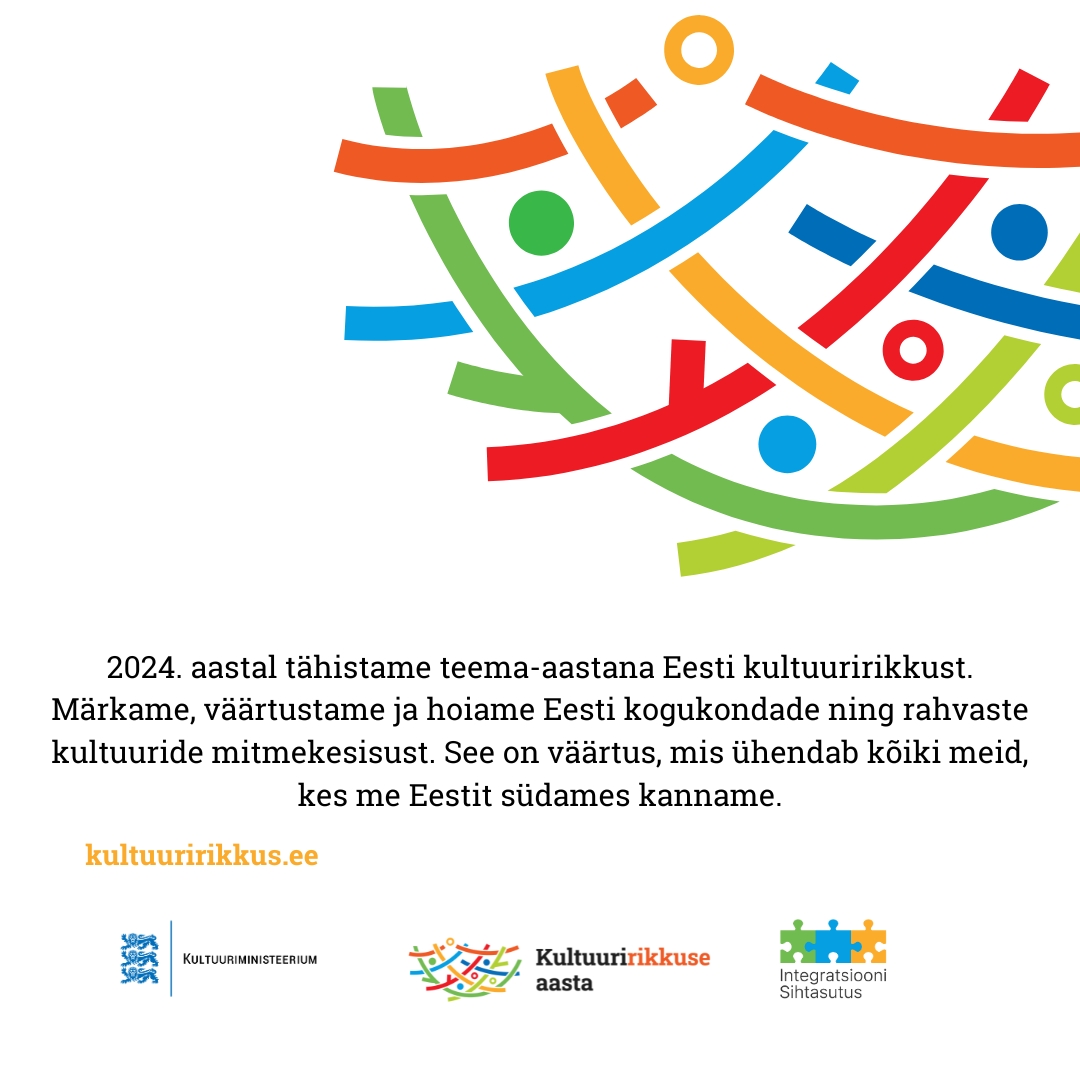
In 2024, the Integration Foundation joined the ranks of PÖFF (Tallinn Black Nights Film Festival) supporters, enabling us to spotlight cultural diversity and its importance. To mark this collaboration, we invited the organizers of the Year of Cultural Diversity to share their insights by answering the following questions:
1. Why is it important for you to support Estonian culture and the film industry today?
This partnership enriches Estonia’s cultural landscape while serving as a vital bridge between different cultures and social groups, fostering integration and unity. By highlighting cultural diversity in the film program, we encourage dialogue and openness—essential elements for building a more inclusive and harmonious society.
We are proud to use the Year of Cultural Diversity as an opportunity to help people understand and appreciate the uniqueness of various cultures. This effort fosters empathy and a deeper awareness of differences, ultimately contributing to a stronger, more cohesive community.
Cinema, with its emotional and immersive nature, is a powerful medium for breaking down cultural barriers and connecting people across differences. Through film, audiences can safely explore the beauty, complexity, and richness of other cultures, traditions, and ways of life.
2. What shared values do the Year of Cultural Diversity and PÖFF hold?
We share a commitment to promoting diversity, community, education, inclusion, and integration. Both organizations place great value on embracing diversity and fostering inclusive environments where all voices are heard and celebrated.
3. What opportunities has PÖFF provided as a collaboration partner?
PÖFF has not only curated a film program dedicated to the Year of Cultural Diversity but also offered platforms for meaningful conversations about diversity. For example, the international integration conference, Cultural Diversity – Opportunity or Obstacle in Building a Cohesive Society?, featured a panel discussion titled “Information Space, Cultural Space, Value Space – How to Unite Them in the Age of Digital Bubbles?” This event brought together experts, filmmakers, cultural leaders, and audiences to exchange ideas and experiences.
4. Share a standout memory from PÖFF.
A particularly memorable moment this year was the screening of the German-Arabic film Turning Tables (Salajas). Following the screening, the audience had the chance to engage in a lively discussion with the film’s producer, Claudia Schröter. This event was part of the Integration Conference and left a lasting impression on all participants.
5. What are your hopes and dreams for your collaboration with PÖFF?
We have explored the deep connections between integration and cinema with the PÖFF team. The lives of iconic Estonian filmmakers such as Elbert Tuganov, Miliza Korjus, Theodor Luts, and Bruno Oja reflect the rich cultural tapestry that informs our cinematic heritage. Today, many of Estonia’s leading film professionals bring global perspectives to our industry, thanks to their diverse cultural roots or international training and experiences.
Films like Turning Tables demonstrate how cinema can address the challenges of integration in today’s world. In fact, some of the most effective policy ideas take shape through audiovisual storytelling. We hope PÖFF’s commitment to showcasing culturally rich perspectives will continue and inspire new projects every year, strengthening our collective efforts to celebrate and foster cultural diversity.
6. If the Year of Cultural Diversity were a film, what genre would it belong to? What story would it tell, and who would be the protagonists?
This would undoubtedly be an inspiring film that blends elements of comedy and drama. It would tell a story that celebrates the significance of diverse cultural heritage and its transformative impact on society, creativity, and identity.
Estonia has always been a meeting point for various cultures, just as Estonians have spread their roots across the world. Today, Estonia is home to people from 217 nationalities, who speak 243 native languages and come from 175 countries. At the same time, there are an estimated 165,000–200,000 Estonians living abroad, further enriching the global cultural fabric.
The film would explore the stories of these communities, highlighting their differences and shared experiences. Its central message would be one of hope and unity, showing how cultural heritage is constantly evolving while remaining a vital foundation of our identity and society.
The narrative would be grounded in realism, portraying integration as a challenging yet rewarding process, one made possible through supportive communities and a willingness to learn. Ultimately, the film would celebrate the humanity that connects us all and remind us that every individual, regardless of their background, deserves understanding, respect, and love.